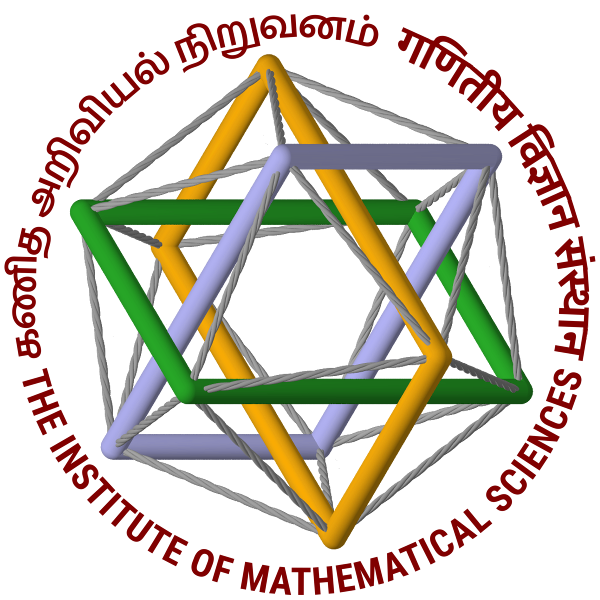A national institute for research in the theoretical sciences
Upcoming Events
Oct 03
10:00-11:30
10:00-11:30
Saket+ | IMSc
Graph Theory Seminar
TCS Seminar | Alladi Ramakrishnan Hall
Oct 03
14:00-15:00
14:00-15:00
Piyush Agrawal | SRM Institute of Science & Technology
Biology Seminar | Alladi Ramakrishnan Hall
Oct 03
15:30-16:30
15:30-16:30
Pranendu Darbar | UNSW and ISI, Kolkata
Mathematics Colloquium | E C G Sudarshan Hall
Oct 03
15:30-17:00
15:30-17:00
Avijit Misra | IIT (ISM) - Dhanbad
Physics Seminar | Alladi Ramakrishnan Hall
Oct 06
12:00-13:00
12:00-13:00
Sharma Thankachan | North Carolina State University (NCSU), Raleigh, USA
TCS Seminar | E C G Sudarshan Hall





